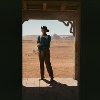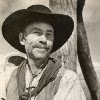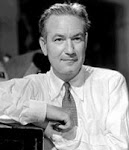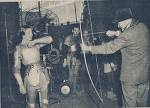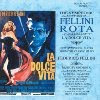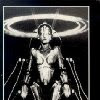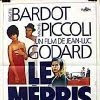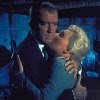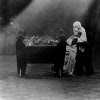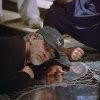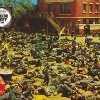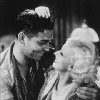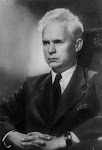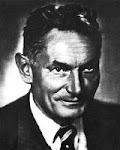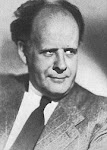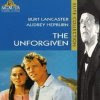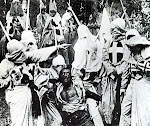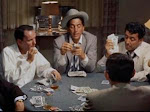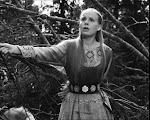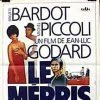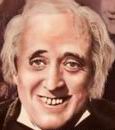One of the few really useful things I took from Psychology 101 was the notion we can have "screen memories": false certainties based upon what we've seen or heard of this or that event, a kind of psychic equivalent to arguments post hoc ergo propter hoc. I have screen memories of Henri Langlois because he figures prominently in Bertolucci's poignant memoir of the mid-60s Parisian film kultur and the roles played not only by the famed curator of the Cinemateque but by his protegees in the left-leaning New Wave movement. Without Langlois, there would never have been a New Wave. He was the Godfather of Us All.
The Dreamers lovingly caught those moments in time; so what if it is not Bertolucci's best work. He's done so many superb movies he could simply rest on his laurels, but he keeps at it. But this was not be best portrait of Langlois. That came in the documentary, The Phantom of the Cinemateque, which was utterly fascinating, delving as it did both in Langlois' cadging of rare movie prints from reluctant or unwilling sources the world over as well as his dedication to film such that he made no distinctions in his programming: you might be watching a Kurosawa Shakespeare one night and Vincente Minelli's Some Came Running the next.
I could not have met Langlois in '65, when I was in Paris and had memories of the riots of '68, but I am almost certain I did. That is the power of a Bertolucci or of the creator of the Langlois documentary, Jacques Richard. Everyone has seen photos of the Bolshevik Revolution and sworn later they were documentaries, when in fact, they were from Eisenstein's version, Ten Days That Shook the World (shown here by that title and as October). For years documentary filmmakers, perhaps thinking that because Eisenstein is dead and the Soviet Union far away, must have felt they had free use of such silent footage; they've pirated Leni Riefenstahl's Triumph of the Will and cut it, too, into documentaries about the Nazis and especially Hitler.
Langlois's willingness to sit through any film ever made by anyone on any budget, any crew, any cast of actors, and any and all other criteria pertaining to the medium was the inspiration, on this side of the Atlantic, for the "Cult Film" sections of rental markets, both VHS and, later, DVD'S. One found oneself sitting through, say, Edgar G. Ullmer's The Black Cat and wondering, "WWLT" (What Would Langlois Think). He might begin with how authentically presented in the film is that branch of occultism known as ceremonial magic: notice the inverted pentagram above the sacrificial altar?
But then Langlois might have thought such carefully concocted literary gems as Albert Lewin's 1943 Maugham work, The Moon and Sixpence, to be pretentious and a bit too tidy, while the pedestrian madness of Sam Fuller's The Naked Kiss more worthy of respect and repeated viewing. Or, and I actually believe this is so, he had an almost-tantric position on it all. Antinomian tantrikas say, "Make no distinction between a turd and a piece of chocolate." To Langlois, there was something good in every film, no matter how awful.
Langlois loved cinema. All cinema. That is why I dedicate this blog to him.
What I did see in Europe the summer of '65 was Werner Herzog's Even Dwarfs Start Small, one of the most surreal pictures made -- unique, really, unless one wants to categorize it with, say, Todd Browning's Freaks, since the messages are similar. I have been a devoted Herzog fan since. My family loves Herzog, particularly my son, Alex. But that is another comment.
Wednesday, December 31, 2008
Subscribe to:
Posts (Atom)
+(2).jpg)
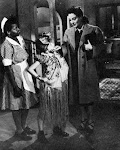.jpg)
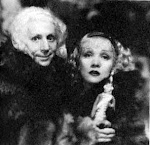+(3).jpg)
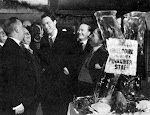+(4).jpg)
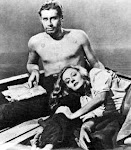+(7).jpg)
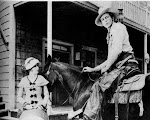.jpg)
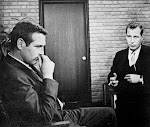+(6).jpg)
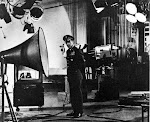+(5).jpg)
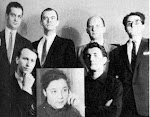.jpg)

